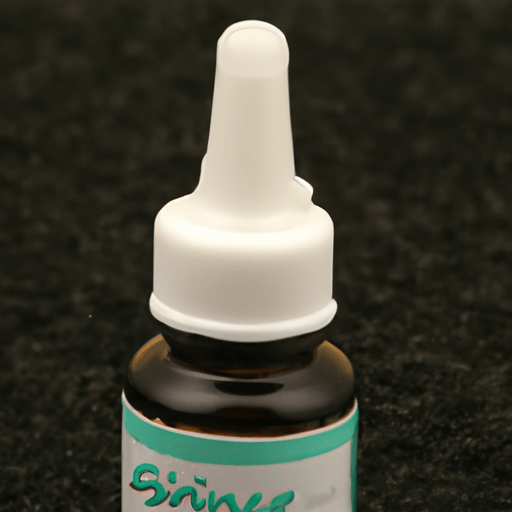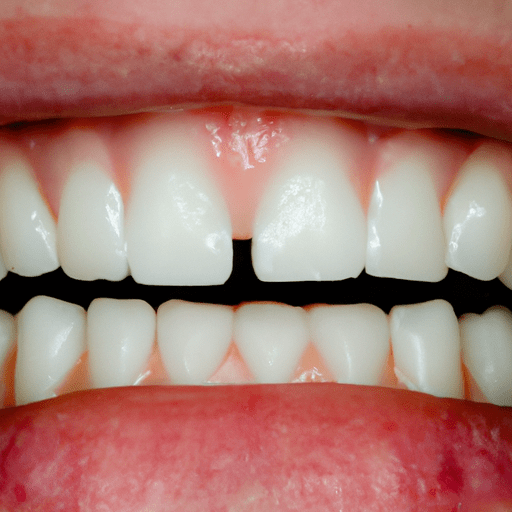Did you know that snoring might be a possible symptom of sinus problems? It turns out that sinus issues can not only lead to annoying stuffed noses and headaches but can also contribute to those sleep-disrupting snores. This article will explore the connection between sinus problems and snoring, providing you with an insight into how these two seemingly unrelated issues could be linked. You’ll discover how sinus congestion and inflammation can impact your airways, leading to snoring, and gain a better understanding of why addressing sinus problems may help alleviate your snoring woes. So, if you’re curious to learn more about this intriguing connection, read on!
Understanding Snoring
Snoring is a common condition that affects many individuals. It occurs when the flow of air through the mouth and nose is partially blocked during sleep, resulting in the vibration of throat tissues. While snoring may seem like a harmless inconvenience, it can actually be a sign of underlying health issues, including sinus problems. In this article, we will explore the connection between sinus problems and snoring, as well as the various causes and types of snorers.

Basics of Snoring
Before delving into the relationship between sinus problems and snoring, it is important to understand the basics of snoring itself. Snoring is generally caused by the relaxation of muscles in the throat and tongue, which can obstruct the airway. Factors such as obesity, age, alcohol consumption, and sleep position can contribute to the intensity and frequency of snoring. While occasional snoring may be harmless, chronic, loud snoring can indicate an underlying issue that requires investigation and treatment.
Causes and Risk Factors
Several factors can contribute to the development of snoring. These include:
- Anatomy: Individuals with a narrowed airway, elongated uvula, or excessive throat tissue are more prone to snoring.
- Obesity: Excess weight can put pressure on the airway, increasing the likelihood of snoring.
- Alcohol and Sedatives: Consuming alcohol or certain medications before sleep can relax the throat muscles, leading to snoring.
- Sleep Position: Sleeping on your back can cause the tongue to collapse into the airway, triggering snoring.
- Age: As we age, the muscle tone in our throat and tongue naturally decreases, increasing the likelihood of snoring.
While these factors can contribute to snoring in general, sinus problems can also play a role in the development of snoring.
Types of Snorers
Not all snorers are the same. There are different types of snorers, each with its own underlying cause. By identifying the type of snorer you are, you can gain a better understanding of the potential connection between sinus problems and snoring. The types of snorers include:
- Mouth Snorers: These individuals primarily snore with their mouth open. The sound is often louder and more recognizable.
- Nasal Snorers: Nasal snoring occurs when the nostrils become partially blocked, leading to turbulent airflow and snoring sounds.
- Tongue Snorers: This type of snorer experiences snoring due to the collapse of the tongue into the back of the throat during sleep.
- Combination Snorers: Combination snorers experience snoring from both the mouth and nose simultaneously.
It is important to note that sinus problems can contribute to both nasal snoring and combination snoring. Understanding the connection between sinus problems and snoring is crucial in finding effective solutions.
The Connection between Sinus Problems and Snoring
Sinus problems can have a significant impact on snoring. The sinuses are air-filled spaces located within the bones of the face and skull, and they play a crucial role in warming, filtering, and moisturizing the air we breathe. When sinus problems arise, they can disrupt the normal airflow, leading to snoring. In this section, we will explore the anatomy of sinuses, how sinus problems cause snoring, and the impact of sinus congestion on breathing.
The Anatomy of Sinus
To understand how sinus problems can contribute to snoring, it is vital to grasp the basic anatomy of the sinuses. The sinuses are lined with a thin layer of tissue called the sinus mucosa, which produces mucus. There are four pairs of sinuses: the frontal, ethmoid, sphenoid, and maxillary sinuses. These interconnected air-filled spaces are located across the forehead, between the eyes, deep behind the nose, and in the cheekbones, respectively.
How Sinus Problems Cause Snoring
When the sinuses become inflamed or infected, it can lead to a condition known as sinusitis. Sinusitis can cause nasal congestion, stuffiness, and post-nasal drip. These symptoms can result in partial blockage of the nasal passages, leading to turbulent airflow during sleep and ultimately causing snoring. The inflammation and swelling of the sinus tissue can narrow the airway, making it more difficult for air to pass freely.
The Impact of Sinus Congestion on Breathing
Sinus congestion, a common symptom of sinus problems, can have a significant impact on breathing, particularly during sleep. When the nasal passages are congested, individuals may resort to mouth-breathing to compensate for the restricted airflow. Mouth-breathing can exacerbate snoring, as it bypasses the normal filtration and humidification processes that occur when breathing through the nose. This can lead to dryness in the throat and mouth, further contributing to snoring.
Understanding the connection between sinus problems and snoring is important for effectively addressing both issues. By addressing sinus problems, individuals can potentially alleviate snoring and improve their overall sleep quality.
Sinus Infections and Snoring
Symptoms to Lookout for
Sinus infections, also referred to as sinusitis, can cause a range of discomforting symptoms. Recognizing these symptoms is crucial in determining whether sinus problems are contributing to snoring. The symptoms of sinus infections may include:
- Nasal congestion
- Facial pain or pressure
- Headaches
- Thick, discolored nasal discharge
- Post-nasal drip
- Coughing
- Fatigue
If you are experiencing any of these symptoms in addition to snoring, it is important to consult with a healthcare professional for a proper diagnosis and treatment.
The Accumulation of Mucus and its Effect on Breathing
One of the primary mechanisms through which sinus infections can contribute to snoring is the accumulation of mucus in the nasal passages. When the sinuses become infected or inflamed, they produce excessive mucus as a defense mechanism. This mucus can begin to obstruct the nasal passages, leading to nasal congestion and difficulty breathing through the nose. As mentioned earlier, mouth-breathing can then result in snoring.
Additionally, the presence of mucus in the throat can cause irritation, leading to coughing and further disrupting sleep. Addressing the underlying sinus infection is crucial in reducing mucus production and alleviating snoring caused by sinus problems.
Treatment of Sinus Infections
Treating sinus infections involves addressing the underlying inflammation or infection in the sinuses. In many cases, sinusitis can be managed with non-invasive treatments, such as:
- Nasal Irrigation: Using a saline solution to rinse the nasal passages can help clear mucus and reduce inflammation.
- Nasal Decongestants: Over-the-counter nasal sprays or decongestant medications can temporarily relieve nasal congestion.
- Moisturizing the Air: Using a humidifier in the bedroom can help keep the air moist, reducing nasal inflammation and congestion.
- Steam Inhalation: Inhaling steam from a bowl of hot water or taking a hot shower can help open up the nasal passages and promote drainage.
- Antibiotics: If the sinus infection is bacterial in nature, a healthcare professional may prescribe antibiotics to eliminate the infection.
In some cases, if conservative treatments do not provide relief, a healthcare professional may recommend further interventions, such as sinus surgery or prescription medications. It is important to discuss treatment options with a medical professional to determine the most appropriate course of action.
By effectively treating sinus infections, individuals can reduce snoring and improve their overall sleep quality.
Allergies and Chronic Sinusitis as Potential Snoring Triggers
Explanation of Allergic Reactions on Sinus
Allergies can play a significant role in the development of sinus problems, including chronic sinusitis. Allergic reactions occur when the body’s immune system overreacts to certain substances, such as pollen, dust mites, pet dander, or mold spores. When allergens enter the body, the immune system releases chemicals that can cause inflammation in the sinuses, leading to symptoms akin to sinusitis.
How Chronic Sinusitis Contributes to Snoring
Chronic sinusitis, a condition characterized by long-term inflammation of the sinuses, can contribute to snoring in several ways. The persistent inflammation and congestion in the nasal passages can narrow the airway, making it more difficult for air to flow freely. This can lead to the development or worsening of snoring symptoms.
Furthermore, the constant presence of mucus in the nasal passages can increase the likelihood of blockage and obstruction, further contributing to snoring. Addressing chronic sinusitis, whether through lifestyle changes or medical interventions, can help alleviate snoring associated with sinus problems.
Nasal Polyps and Snoring
Understanding Nasal Polyps
Nasal polyps are noncancerous growths that can develop in the lining of the nasal passages or sinuses. These soft, painless growths are often the result of chronic inflammation in the sinuses. While nasal polyps are typically benign, they can cause a range of symptoms and complications, including snoring.

Symptoms and Complications
The presence of nasal polyps in the nasal passages or sinuses can lead to various symptoms, such as:
- Nasal congestion
- Difficulty breathing through the nose
- Reduced sense of smell
- Post-nasal drip
- Chronic sinus infections
- Snoring
Nasal polyps can obstruct the nasal passages, leading to partial blockage and turbulent airflow. This turbulent airflow is often responsible for the development of snoring symptoms in individuals with nasal polyps.
Treatment and Care
Addressing nasal polyps typically involves a combination of medical interventions and lifestyle changes. Treatment options may include:
- Medications: Nasal corticosteroids or oral corticosteroids can help reduce inflammation and shrink nasal polyps.
- Nasal Irrigation: Rinsing the nasal passages with a saline solution can help clear mucus and reduce nasal congestion.
- Surgery: In some cases, surgical removal of nasal polyps may be necessary if other treatments do not provide relief.
In addition to medical treatment, individuals with nasal polyps can benefit from lifestyle changes, such as avoiding allergens, practicing good nasal hygiene, and maintaining a healthy weight.
By addressing nasal polyps, individuals can potentially reduce snoring symptoms and improve their overall respiratory health.
Deviated Septum and Snoring
Understanding Deviated Septum
The nasal septum is a thin wall of bone and cartilage that separates the left and right nostrils. In some individuals, the nasal septum is not perfectly centered, but rather deviates to one side. A deviated septum can be present from birth or result from an injury to the nose. This anatomical irregularity can significantly contribute to snoring.
How Deviated Septum Contributes to Snoring
When a person has a deviated septum, it can cause one nasal passage to be smaller than the other. This size discrepancy can lead to nasal congestion, difficulty breathing through the nose, and turbulent airflow. The turbulent airflow can increase the likelihood of snoring and affect the quality of sleep.
Individuals with a deviated septum may experience worsened snoring when lying on their side, as it can further obstruct the smaller nasal passage. Understanding the connection between a deviated septum and snoring is crucial in exploring potential treatment options.
Treatment Options
Treating snoring associated with a deviated septum often involves addressing the underlying anatomical irregularity. Treatment options may include:
- Medications: Nasal corticosteroids can help reduce inflammation in the nasal passages and alleviate symptoms of congestion.
- Nasal Strips: Over-the-counter nasal strips can help hold the nasal passages open, improving airflow and reducing snoring.
- Surgery: In cases where the deviated septum significantly impacts breathing and quality of life, a healthcare professional may recommend corrective surgery called septoplasty.
It is important to consult with a medical professional to determine the most suitable treatment approach for snoring caused by a deviated septum.
Diagnosing Sinus Related Snoring
Consulting a Sleep Specialist
When snoring is suspected to be related to sinus problems, it is important to consult with a sleep specialist. A sleep specialist is a healthcare professional who specializes in sleep disorders and can provide a comprehensive evaluation to determine the underlying cause of snoring.
During a consultation, the sleep specialist may ask about the individual’s medical history, conduct a physical examination, and inquire about the frequency and intensity of snoring episodes. They may also recommend additional diagnostic tests to gather more information.

Tests and Techniques (e.g., Sleep Studies, Nasal Endoscopy)
To diagnose sinus related snoring, sleep specialists may employ various tests and techniques. These can include:
- Sleep Studies: Polysomnography, also known as a sleep study, can monitor various physiological factors during sleep, such as airflow, blood oxygen levels, and brain activity. This can help identify the presence of snoring and its relationship to sinus problems.
- Nasal Endoscopy: A nasal endoscopy involves the insertion of a thin, flexible tube with a light and camera into the nasal passages to visualize the sinuses and identify any abnormalities or obstructions.
These diagnostic tests, along with a thorough evaluation of symptoms and medical history, can help determine whether sinus problems are contributing to snoring and guide in the development of an appropriate treatment plan.
Identifying the Root Cause of Snoring
Through the diagnostic process, healthcare professionals aim to identify the root cause of snoring in individuals with sinus problems. While sinusitis and anatomical irregularities, such as a deviated septum or nasal polyps, are common underlying causes, it is important to rule out other factors. By accurately identifying the root cause, healthcare professionals can recommend targeted treatment options to alleviate snoring and improve sleep quality.
Surgical Solutions for Sinus-Related Snoring
Types of Surgery
In some cases, surgical intervention may be necessary to address snoring associated with sinus problems. Various surgical procedures can target the underlying issues contributing to snoring. The types of surgeries commonly used for sinus-related snoring include:
- Septoplasty: This surgical procedure corrects a deviated septum by straightening and repositioning the nasal septum, allowing for improved airflow.
- Turbinectomy: A turbinectomy involves the removal or reduction in size of nasal turbinates, which are small structures within the nasal passages that can contribute to nasal congestion and snoring.
- Sinus Surgery: In cases of chronic sinusitis or nasal polyps, sinus surgery may be recommended to remove obstructions, alleviate inflammation, and improve sinus drainage.
The specific surgical approach will depend on the underlying issue and the recommendations of a healthcare professional. It is essential to have a thorough discussion with a medical professional to fully understand the benefits, risks, and potential outcomes of any surgical procedure.
Benefits and Risks of Surgery
Surgical solutions for sinus-related snoring can offer significant benefits to individuals experiencing chronic snoring issues. By addressing the underlying problems, surgeries can potentially improve airflow, reduce congestion, and alleviate snoring symptoms. However, it is important to consider the potential risks associated with surgery as well.
Some common risks and complications related to sinus surgery can include bleeding, infection, scarring, changes in nasal shape, and potential damage to surrounding structures. It is crucial to discuss these risks with a healthcare professional and weigh them against the potential benefits before making a decision about surgery.
Postoperative Care
Following sinus surgery, proper postoperative care is essential to optimize healing and minimize complications. Depending on the specific surgical procedure performed, postoperative care may include:
- Pain Management: Over-the-counter or prescribed pain medications may be recommended to manage any discomfort following surgery.
- Nasal Irrigation: Rinsing the nasal passages with a saline solution can help keep them clean and promote healing.
- Follow-up Appointments: Regular check-ups with a healthcare professional will allow for monitoring of healing progress and the identification of any potential issues.
It is important to closely follow the postoperative care instructions provided by the healthcare professional to ensure optimal recovery and the best possible outcome.
Lifestyle Changes to Manage Sinus-Related Snoring
In addition to medical interventions, certain lifestyle changes can help manage snoring associated with sinus problems. By implementing these changes, individuals may experience a reduction in snoring frequency and intensity. Some lifestyle changes that can be beneficial include:
Diet and Exercise
Maintaining a healthy diet and engaging in regular physical exercise can have a positive impact on snoring and overall respiratory health. Obesity is a common risk factor for snoring, as excess weight can put pressure on the airway and contribute to obstruction. By adopting a well-balanced diet and incorporating regular exercise into your routine, you can potentially reduce snoring and improve your overall well-being.
Avoiding Allergens
If your snoring is triggered by allergies or chronic sinusitis, it is important to identify and avoid allergens that may be exacerbating your symptoms. Common allergens include pollen, dust mites, pet dander, and mold spores. Taking steps to minimize exposure to these allergens, such as keeping windows closed, using air purifiers, and regularly cleaning your living environment, can help alleviate sinus problems and reduce snoring.
Hydration and Humidifiers
Maintaining proper hydration is essential for thinning mucus and promoting healthy sinus function. Make sure to drink an adequate amount of water throughout the day to keep your nasal passages moist. Additionally, using a humidifier in your bedroom can help alleviate nasal congestion and promote better breathing during sleep.
Sleep Practices and Positioning
Simple changes in your sleep practices and positioning can make a significant difference in snoring related to sinus problems. Consider the following tips:
- Sleep on your side: Sleeping on your side can help keep the airway open and reduce the likelihood of snoring. Using a body pillow or placing a tennis ball in a sock and pinning it to the back of your sleepwear can help maintain the side-sleeping position.
- Elevate your head: Using an extra pillow or raising the head of your bed slightly can help alleviate nasal congestion and reduce snoring.
- Avoid alcohol and sedatives: Alcohol and sedatives can relax the throat muscles and contribute to snoring. Avoid consuming these substances before bedtime.
By implementing these lifestyle changes, you can potentially manage sinus-related snoring and improve your sleep quality.
Future of Sinus-Related Snoring Treatments
Emerging Solutions
Advancements in medical research and technology are continually expanding the options available for treating sinus-related snoring. Emerging solutions may include:
- Targeted Therapies: Researchers are exploring the development of medications that directly target the underlying causes of sinus problems, including inflammation and nasal congestion.
- Minimally Invasive Procedures: Continued advancements in surgical techniques may lead to less invasive procedures with reduced risks and faster recovery times.
- Precision Medicine: As our understanding of individual genetic makeup improves, personalized treatment plans based on an individual’s genetic profile may become more prevalent.
These emerging solutions hold promise for more effective and tailored treatments for sinus-related snoring in the future.
Effects of Technological Advancement on Treatments
Technological advancements play a crucial role in improving the diagnosis and treatment of sinus-related snoring. Innovative imaging techniques and diagnostic tools allow healthcare professionals to gain a more accurate understanding of the underlying issues contributing to snoring.
Additionally, advancements in surgical techniques, such as computer-assisted navigation systems and endoscopic tools, have made sinus surgeries more precise and less invasive. These technological advancements have the potential to enhance treatment outcomes and improve patient satisfaction.
Leap in Personalized Medicine, Genetic Research
Personalized medicine, also known as precision medicine, aims to tailor medical treatments to an individual’s unique genetic makeup. Genetic research is uncovering important insights into the development and progression of sinus problems, including snoring. By understanding how specific genetic factors contribute to sinus-related snoring, healthcare professionals may be able to develop targeted therapies that address the root causes with greater precision.
As our understanding of genetics continues to evolve, it is possible that personalized medicine will revolutionize the treatment of sinus-related snoring, leading to more effective and successful outcomes.
In conclusion, understanding the connection between sinus problems and snoring is crucial in finding effective solutions to alleviate snoring symptoms and improve overall sleep quality. By exploring the anatomy of sinuses, the impact of sinus congestion, and the various treatment options available, individuals can take proactive steps to address sinus-related snoring. Whether through lifestyle changes, medical interventions, or emerging solutions, there is hope for a future where sinus-related snoring can be effectively managed, helping individuals achieve restful and rejuvenating sleep.






